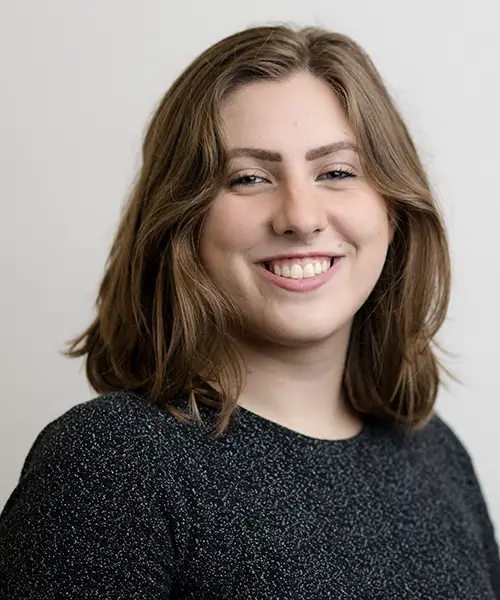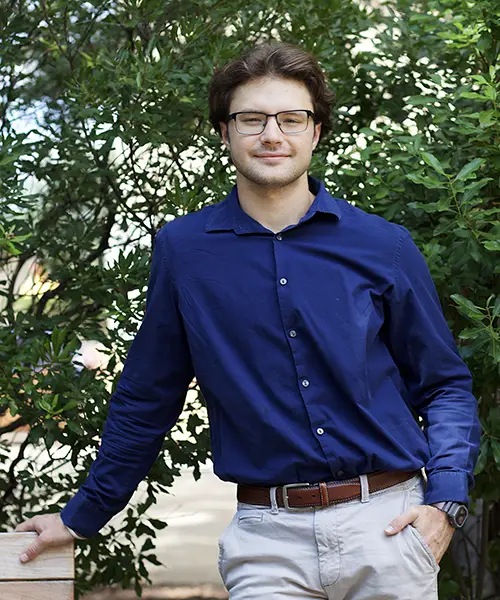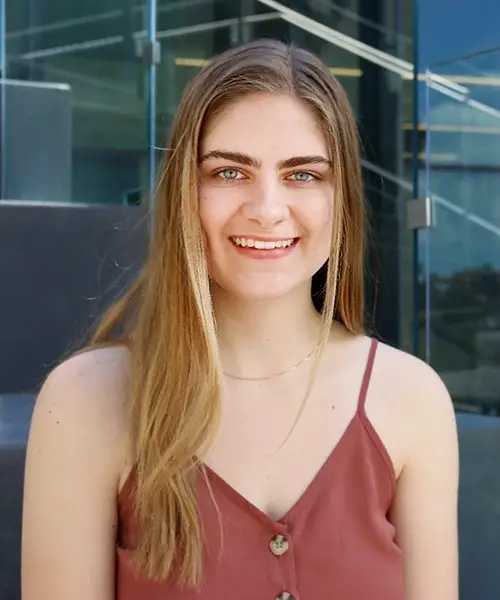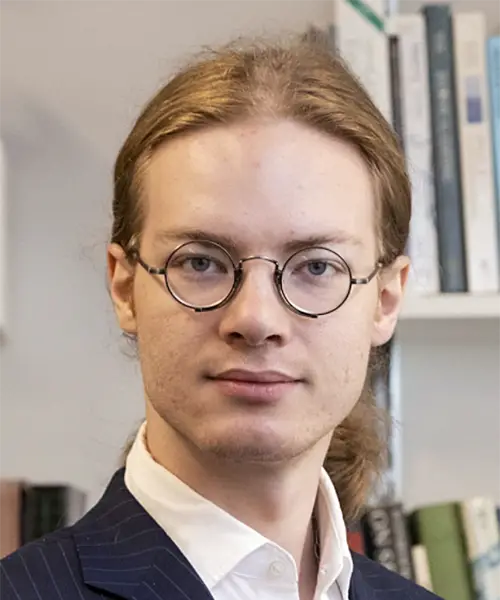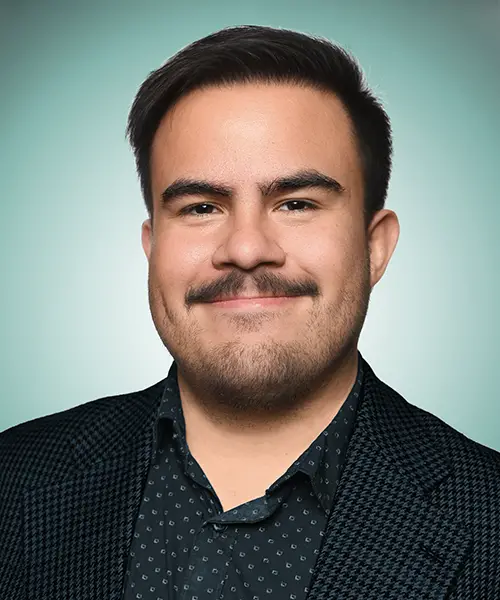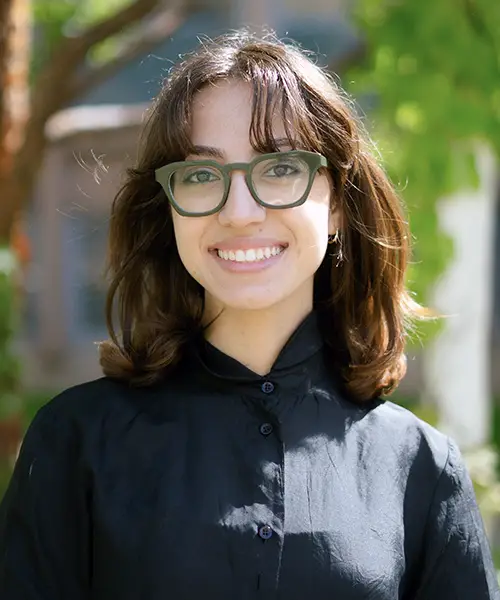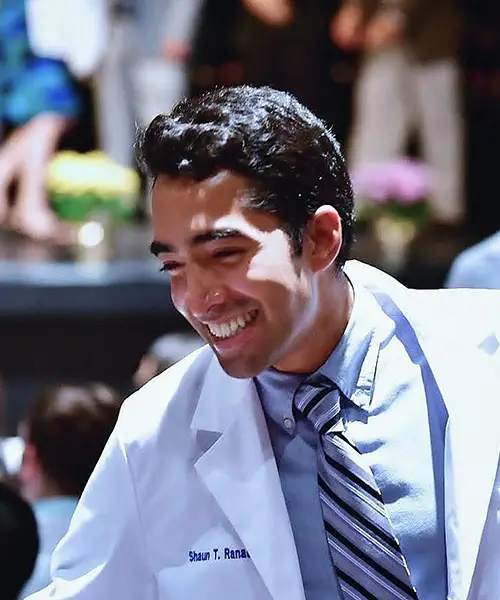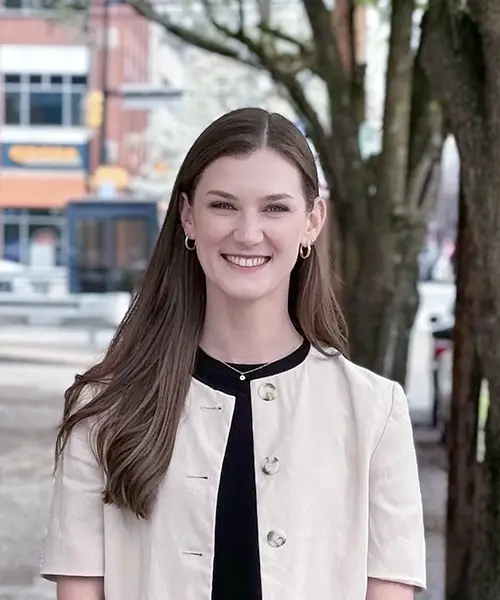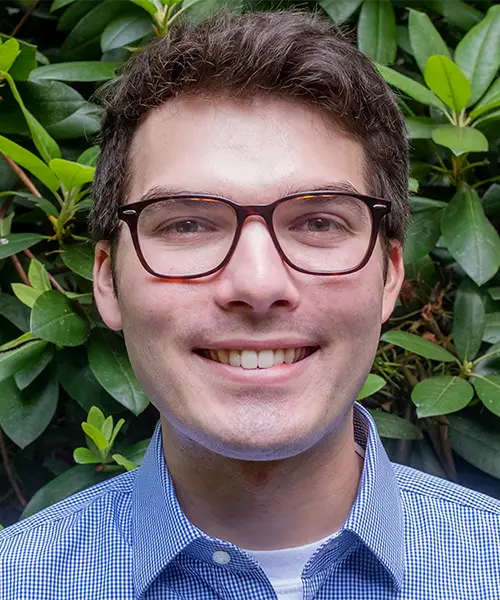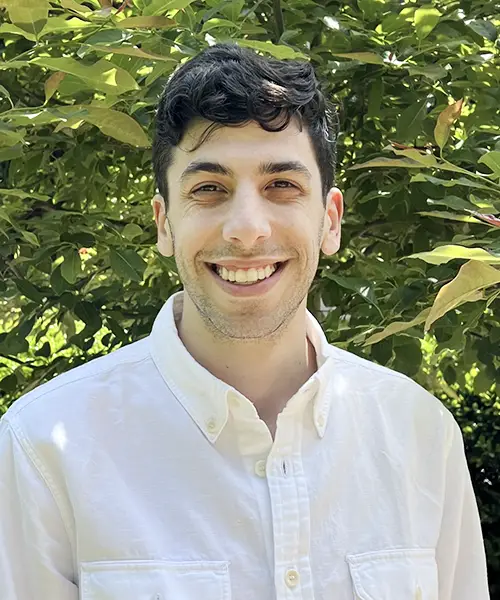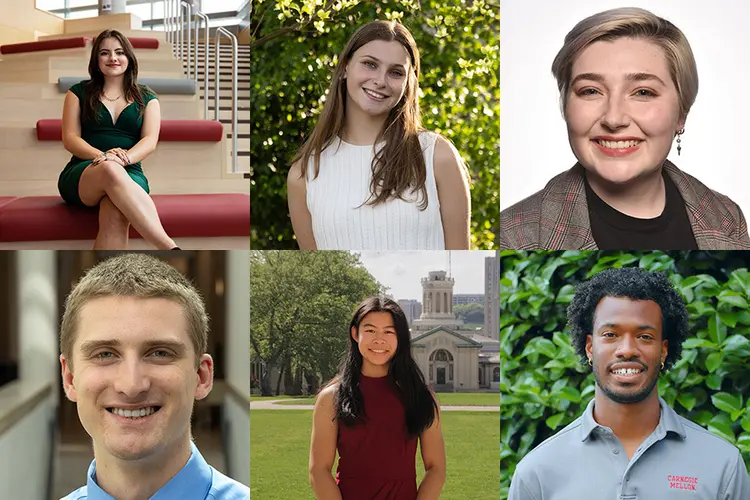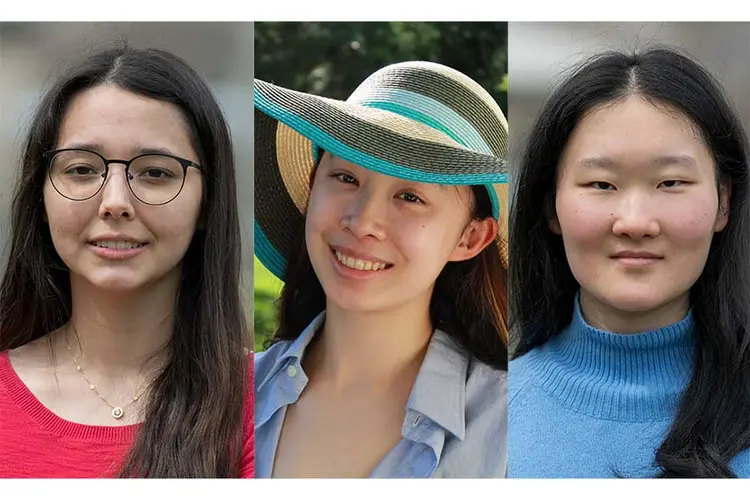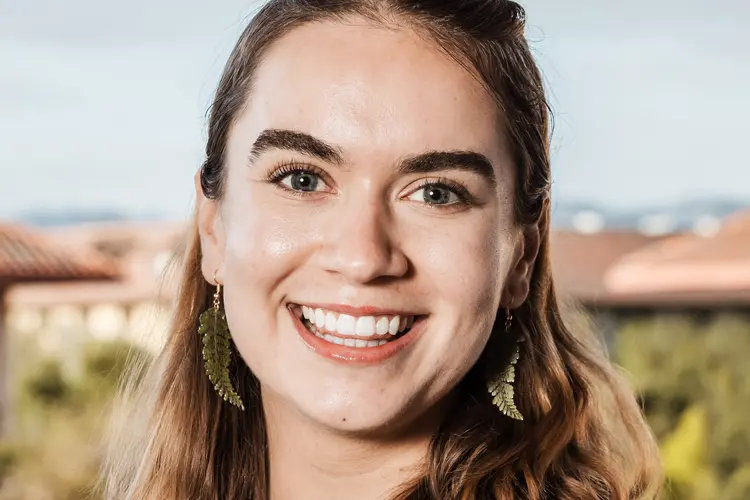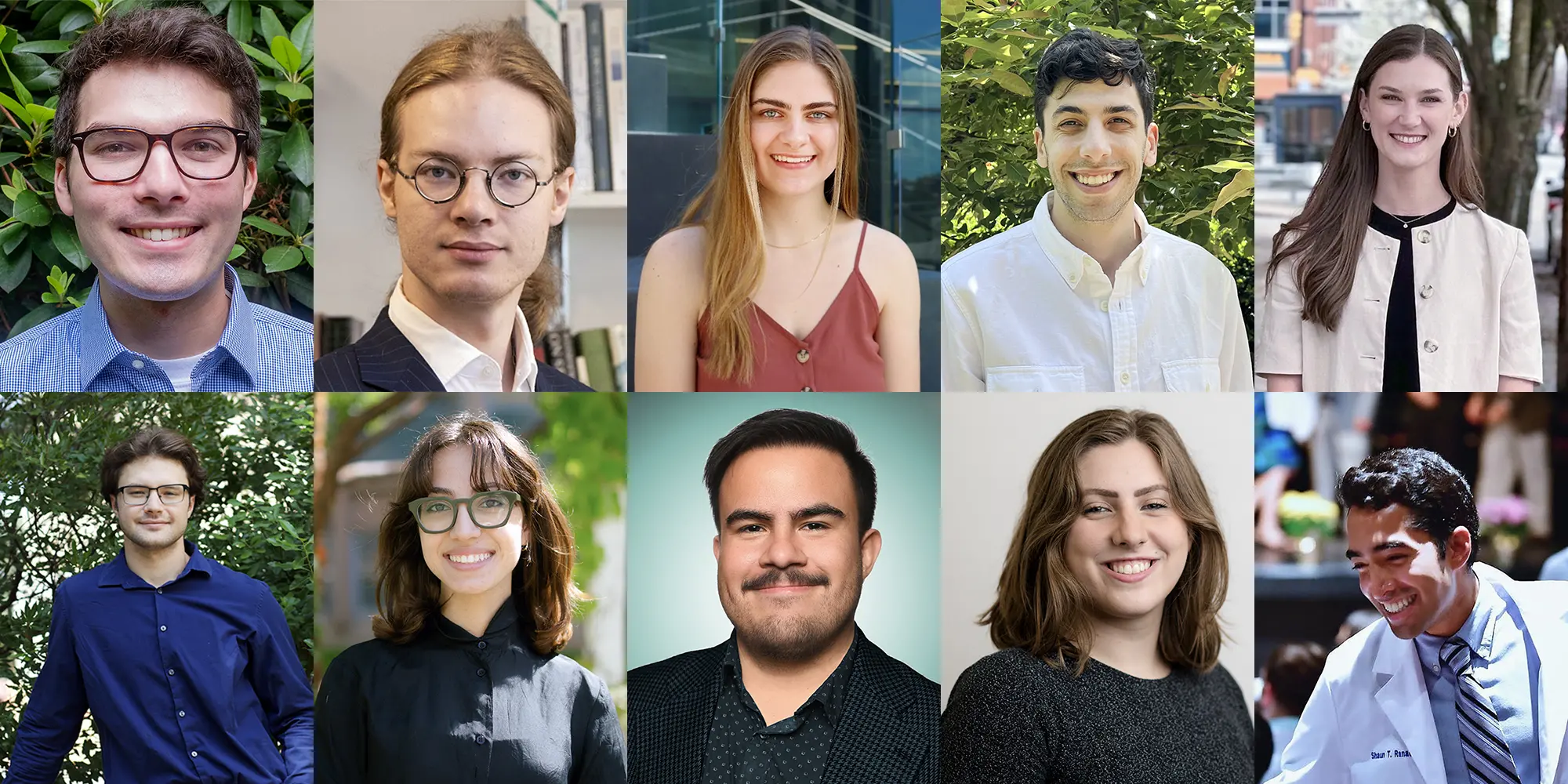
10 Tartans Named Fulbright Scholars for 2024-25 Award Cycle
Media Inquiries
Ten members of the Carnegie Mellon University community have been selected as grant recipients for the U.S. Fulbright Student Program's 2024-25 competition cycle. The program, in partnership with over 140 countries, allows grantees to conduct research, pursue a course of study at the graduate level or teach English abroad in one country of their choosing.
The grantees include Kristin Daniel, Ian Gimino, Katie Hart, Adrian Lapadat, Jose (Paul) Molina, Zeynep Ozkaya, Shaun Ranadé, Devon Renfroe, Ben Therrien and Matthew Turetsky.
Since the program's inception in 1946, Carnegie Mellon has seen over 100 Tartans become Fulbright Scholars. The Office of Undergraduate Research and Scholar Development at Carnegie Mellon supports students and alumni in the application process each year.
Kristin Daniel
Growing up in Detroit, Kristin Daniel was inspired by the water crisis in nearby Flint, Michigan, to work in health research, driven to improve equitable access to health care.
“I decided to become a biomedical engineer to use my inclination toward health research to help people,” she said. “I want to make it so that a baby does not have a worse chance of surviving because they grew up 30 minutes north.”
She was led by this ambition to study chemical engineering(opens in new window) and biomedical engineering(opens in new window) at Carnegie Mellon’s College of Engineering(opens in new window), and she graduated in 2023. While at CMU, she joined the Macrophage Therapeutics Lab, led by principal investigator Elizabeth Wayne(opens in new window).
Daniel established a connection between the Macrophage Therapeutics Lab and researchers in Birmingham, in the United Kingdom. She will travel there with her Fulbright to study preeclampsia, a complication that can occur during pregnancy. Not much is currently known about preeclampsia due to inequities in reproductive health research, so during her Fulbright, Daniel hopes to “gain a perspective on social determinants of health and other economic impacts that affect preeclampsia.” Infant and maternal mortality is lower in the United Kingdom than in the United States, and Daniel wants to research possible reasons for that disparity.
When she has finished her work in Birmingham, Daniel hopes that the experience will help her achieve a Ph.D. and run her own research laboratory.
“I am enthused by the possibility of global collaboration on these issues,” she said.
Ian Gimino
Ian Gimino, who graduated with a degree in chemical engineering, has been selected to research immunotherapy treatment devices in Munich, Germany.
He will study at the Technical University of Munich, working with the translational cancer research center TranslaTUM(opens in new window) and the university hospital Klinikum Rechts der Isar. There, he will work on devices that can produce nanovesicles, or small organic structures that deliver drugs to cells. In particular, he hopes to improve immunotherapy treatments for head and neck cancers, which are difficult to treat with current methods.
Ian is interested in applying engineering principles to medical questions, so the focus of the lab he will be joining along with the strong German culture of Bavaria made Munich “easy to choose” during his Fulbright application.
He was “elated” to be selected for the award. He credits his CMU experience for giving him crucial problem-solving skills, and he thanks the supportive community of faculty and staff who helped him search for the right location and project. “The scholarship will provide invaluable insights for understanding the difference between U.S. and German health care systems along with being in an environment with extreme engineering expertise,” he said.
Katie Hart
Katie Hart graduated with her bachelor’s degree in civil and environmental engineering(opens in new window) with an additional major in engineering and public policy(opens in new window). She will use her Fulbright to study for her master’s degree at the Ostbayrische Technische Hochschule Amberg-Weiden in Amberg, Germany.
There, she will continue learning about environmental engineering and public policy, with a special focus on clean energy. She is interested in Germany’s energy policy and how they have been transitioning toward more renewable sources of energy. They have had an interesting transition, she said, as they have had to produce more coal to make up for energy lost as nuclear power plants are decommissioned, and Hart wants to know what the United States can understand from this experience. She wants to collaborate with energy policy experts across the world to learn how the world can transition to clean energy at the international level in order to mitigate climate change.
Her interest in clean energy was sparked by a research experience and further developed by classes both in the Department of Civil and Environmental Engineering. She also studied abroad in Rome last spring: “It was an amazing experience that gave me a taste of living and learning in a new country,” she said.
Earlier this year, she was honored with the George Washington Award(opens in new window), recognizing her academic excellence and leadership.
“I think many CMU students would understand the experience of holding themselves to high academic and professional standards, and we might not always stop and take the time to feel proud of what we’ve accomplished, whether it reaches our standards or not,” Hart said. “Receiving the Fulbright is a reminder to me to take time and celebrate my time in college and what I have done, as well as thank my mentors, professors, family and friends who had such an impact on my time here.”
Adrian Lapadat
Adrian Lapadat graduated with a master of arts in professional writing from the Dietrich College of Humanities and Social Sciences(opens in new window) in 2023, and was awarded the Fulbright scholarship to conduct research on emigration from Bacău county in Romania.
“Many Romanians, like my parents, leave to work abroad,” said Lapadat. “Most don't come all the way over to the United States, but that distance is still something that's very hard to cope with, both for those who leave and those who stay behind.”
Lapadat plans to conduct a series of interviews to shed light on the material and psychological impact of emigration on those who stay in the home country. He likens this to a qualitative psychological research approach that also has a linguistic component.
Lapadat’s goal is to use his writing and research skills to conduct thorough research into this matter and craft more creative accounts of these emigration stories.
“I'm interested in applying my writing and research skills to something I care about,” said Lapadat. “Mass emigration doesn't just affect countries like Romania ... it has large consequences for countries like Bulgaria, Serbia — really, the entire Balkan region.”
Paul Molina
Paul Molina is a Salvadoran artist and designer who graduated this spring from the School of Drama(opens in new window) with a master of fine arts degree in scenic design. His belief in the power of space, story and theater has guided his work on stage and will be the focus of the creative project for which he received a Fulbright research grant to Mexico.
Starting in September, Molina will spend nine months in Mexico City working on a public art installation responding to the family displacement and gentrification caused by recent Airbnb rentals to digital nomads.
“At 4 years old, I was transforming home furniture into magically escapist pillow forts with the help of mosaic blankets, mismatched chairs and glittering trinkets,” Molina said. “I have always enjoyed creating imaginative spaces from everyday found objects.”
With the addition of his master’s in scenic design to his bachelor’s degree in interior architecture, Molina aims to create narrative spaces of childhood play — in the form of playgrounds, immersive environments and installations — that will help facilitate organic curiosity, exploration and surprises for children and adults alike.
During his time at CMU, Molina designed the sets for productions including “A Little Night Music” and “Babel” in the School of Drama and the opera “Looking at You” in the School of Music(opens in new window). He is also the recipient of the 2024 Cody Renard Richard Scholarship, which supports the next generation of theater-makers of color working behind the scenes.
Zeynep Ozkaya
Zeynep Ozkaya, who graduated this year with a degree in electrical and computer engineering(opens in new window), will be traveling to the Max Planck Institute for Intelligent Systems in Stuttgart, Germany to study deep brain stimulation.
Ozkaya has a strong interest in neuroscience and how it intersects with electrical engineering. “I want to work within a field that allows me to make a strong impact on both scientific discovery and patient lives,” she said. While at CMU, she worked as a research assistant for the labs of both Jana Kainerstorfer(opens in new window) and Marlene Behrmann(opens in new window), and these research experiences have prepared her for the intensive research she will do in Stuttgart.
The Fulbright will not be her first time studying in Stuttgart; she researched at the Max Planck Institute for Intelligent Systems last summer through the International Summer Undergraduate Research Fellowship(opens in new window). That experience is why she applied for a Fulbright in Germany, in order to continue the research project she began then. She will be researching deep brain stimulation with magnetic nanoparticles in order to help people suffering from diseases such as epilepsy or Parkinson’s disease.
When medication does not work or if it causes negative side effects, physicians often try to treat these patients with deep brain stimulation. However, this treatment requires an invasive surgery for a deep brain implant. “Through working on less invasive DBS mechanisms (such as magnetic nanoparticles), I hope to contribute to the body of work that could revolutionize non-drug-dependent treatment for neurodegenerative disorders,” she said. She hopes to use her research to learn more about deep brain stimulation and develop better treatments for patients with neurodegenerative disorders.
“The Fulbright Scholarship is a great opportunity for me to further explore my research interests while experiencing a different culture,” she said. “An exchange of different ideas and perspectives is crucial to scientific advancement, and this scholarship will enable me to contribute to an exchange of knowledge between different cultures and foster collaboration.”
Shaun Ranadé
Shaun Ranadé, an alumnus of three CMU colleges, will be headed to Nepal for his Fulbright project. He graduated in 2016 with a master’s degree in biomedical engineering, and before that, he earned two bachelor’s degrees: one in biological sciences(opens in new window) and the other in Japanese studies(opens in new window). He is currently a third-year medical student in New York.
In Nepal, he will treat gestational diabetes by implementing continuous glucose monitoring. Nepal has a 20% higher rate of gestational diabetes than neighboring countries, and the government has prioritized treating it, which made it an ideal place for him to implement telemonitoring to improve the health of mothers and infants. In addition, he has local connections to the area, so he said he looks forward to seeing its natural beauty and participating in cultural and religious festivals.
Gestational diabetes is a personal issue for Ranadé, since it has affected the lives of many people he knows. “I am motivated by the potential to level the playing field and give children a healthy start in life.”
He was involved in the CMU community during his time as a student: beyond his three degrees, he also co-founded CMU’s chapter of Global Public Health Brigades(opens in new window). He said he believes “medical knowledge, cultural competence and compassion are essential for effective physicians,” and this ethos has informed his degree choices and other activities, including this Fulbright.
He said his interdisciplinary CMU experience across three colleges prepared him for his work, which has not just included medical school, but also in fields such as biotechnology investment consulting, biotechnology intellectual property law, and in cellular therapeutics research and development.
“The supportive environment and rigorous curriculum have equipped me with the skills and confidence to engage with key opinion leaders, subject matter experts and practicing physicians,” he said.
He has also been awarded an NIH Fogarty Fellowship in Public Health and the Northern Pacific Global Health Fellowship. “Receiving the Fulbright Scholarship is a recognition of my continued commitment to serving others through health care and as a future physician,” he said. “The Fulbright experience and its alumni network are helping me become a public health leader, demonstrating that health concerns are universal and that current standards of care should be accessible to all including rural settings.”
Devon Renfroe
Devon Renfroe, who earned her master of arts in applied second language acquisition from the Department of Languages, Cultures & Applied Linguistics(opens in new window), plans to continue her passion for the Korean language as part of her Fulbright experience.
After graduation, Renfroe moved to Korea and taught English in a middle school while simultaneously teaching herself Korean.
“I found that learning the language allowed me to embody these different identities that I don’t have access to in English,” said Renfroe. “I can be someone in a Korean context that I can’t be in English — that whole process was really meaningful to me.”
As a result of this experience, Renfroe realized that she wanted to combine her love of teaching with her newfound interest in the Korean language.
She plans on studying how the Korean language is structured around the relational aspects of communication.
“Korean is a language that has a really complex and interesting honorific system … the way you choose which of these features to use (these relational factors of the language) have a really big impact on how you relate to other people,” said Renfroe. “I want to analyze how first–language and second–language Korean speakers relate to each other and interact with each other using these specific features of the language.”
Renfroe plans to fold her teaching experience and her time in Korea into a Ph.D. project to explore how learning a language can be a transformative experience.
“This project will hopefully be my dissertation,” she said. “The idea is to — through mostly recorded conversations between first–language Korean speakers and second–language Korean speakers — analyze how they use particular features of the language.”
Renfroe will be conducting her study at Chonnam National University.
“I love teaching, and I love language so much that it’s always been fun to be in a classroom where that’s the center of attention,” said Renfroe. “Language is such a powerful tool for people to understand each other cross-culturally.”
Ben Therrien
Ben Therrien, a current Ph.D. candidate pursuing a joint degree in civil and environmental engineering and in engineering and public policy, will be traveling across the European Union on his Fulbright award.
There, he will be completing his dissertation, in which he seeks to understand agricultural nanotechnology through two main perspectives: through understanding how the technology is developed, and through investigating how risks and policies associated with the new technology are communicated. In particular, he will be working on the last chapter of his dissertation, in which he will speak with stakeholders across Europe to see how his communication strategy performs and what risks the stakeholders are sensitive to. He will compare these communication sensitivities to those of U.S. stakeholders, because, he said, “Developing a unified communication and policy framework for new technologies, like nanotechnology, can help support our mutual food security goals into the future.”
Therrien will work with researchers from primarily three universities: the Swedish University of Agricultural Sciences in Sweden, Ludwig Maximilian Institute of Munich in Germany, and Łódź University of Technology in Poland. Germany and Poland have prominent agricultural sectors, and Sweden has a history of risk communication work in agricultural and food sciences.
Therrien was inspired to apply for the Fulbright because of his experience as a joint-degree student, which has taught him to appreciate how technology is developed along with the roles of risk communication and policies regarding that technology. “I think that informing the public about science and technology is an important part of engineering,” he said. “My Fulbright project leverages my technical understanding of nanotechnology and allows me to put my behavioral and decision science training into practice as I work toward my science communication goals.”
He thanked the CMU community for the support that led to the award. “Being a Fulbright Schuman Scholar is an incredible honor,” he said. “I owe a huge debt of gratitude to my advisers in EPP and CEE for supporting my research goals, to CMU's Office of Research and Scholar Development for helping me throughout the application process, and to my peers who inspire me to take on new challenges!”
Matthew Turetsky
Matthew Turetsky, a Ph.D. student in the History Department(opens in new window), will conduct research regarding the cultural, social and economic factors surrounding the history of quinoa.
Quinoa holds a special place in Turetsky’s mind and heart. He traveled to Peru in 2019 and encountered agricultural displays in the many small villages. Unlike the homogenization found in supermarkets in the West, the displays highlighted the diversity of crops grown in the region.
“The colors (of the different quinoa varieties) captivated me right away,” said Turetsky. “From then on, I was fascinated by this question and the issue of diversity of crops.”
These lingering questions increased his curiosity. When the opportunity of the Fulbright award came along, he knew what he wanted to study. He received funds for three months of research in Bolivia and seven months of research in Peru.
“My research focuses on the conservation and commodification of quinoa,” he said. “Peru and Bolivia are the two most prominent countries that are producing (quinoa) today, and for centuries have been the leading producers — and until about the 1980s and 1990s, it was a subsistence crop. It only recently became an international food as we know it today.”
According to Turetsky, the recent buzz surrounding quinoa is what drove him to focus particularly on this crop.
Turetsky aims to use his Fulbright award to further investigate and answer the questions surrounding how farmers in the region managed to conserve the diverse varieties of quinoa in the face of changing economic, political and social conditions in the 20th century, mainly from the 1930s-1980s.
